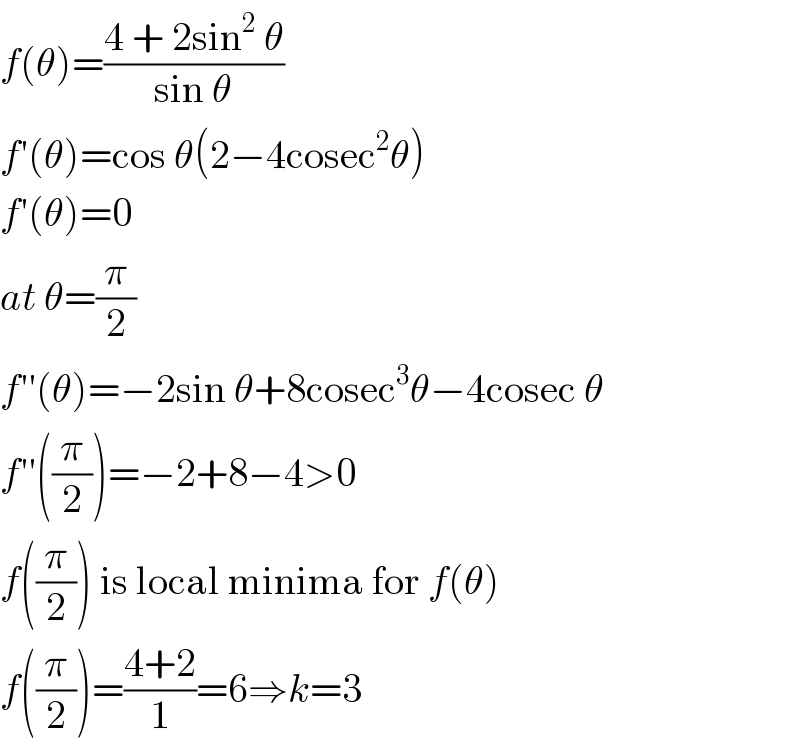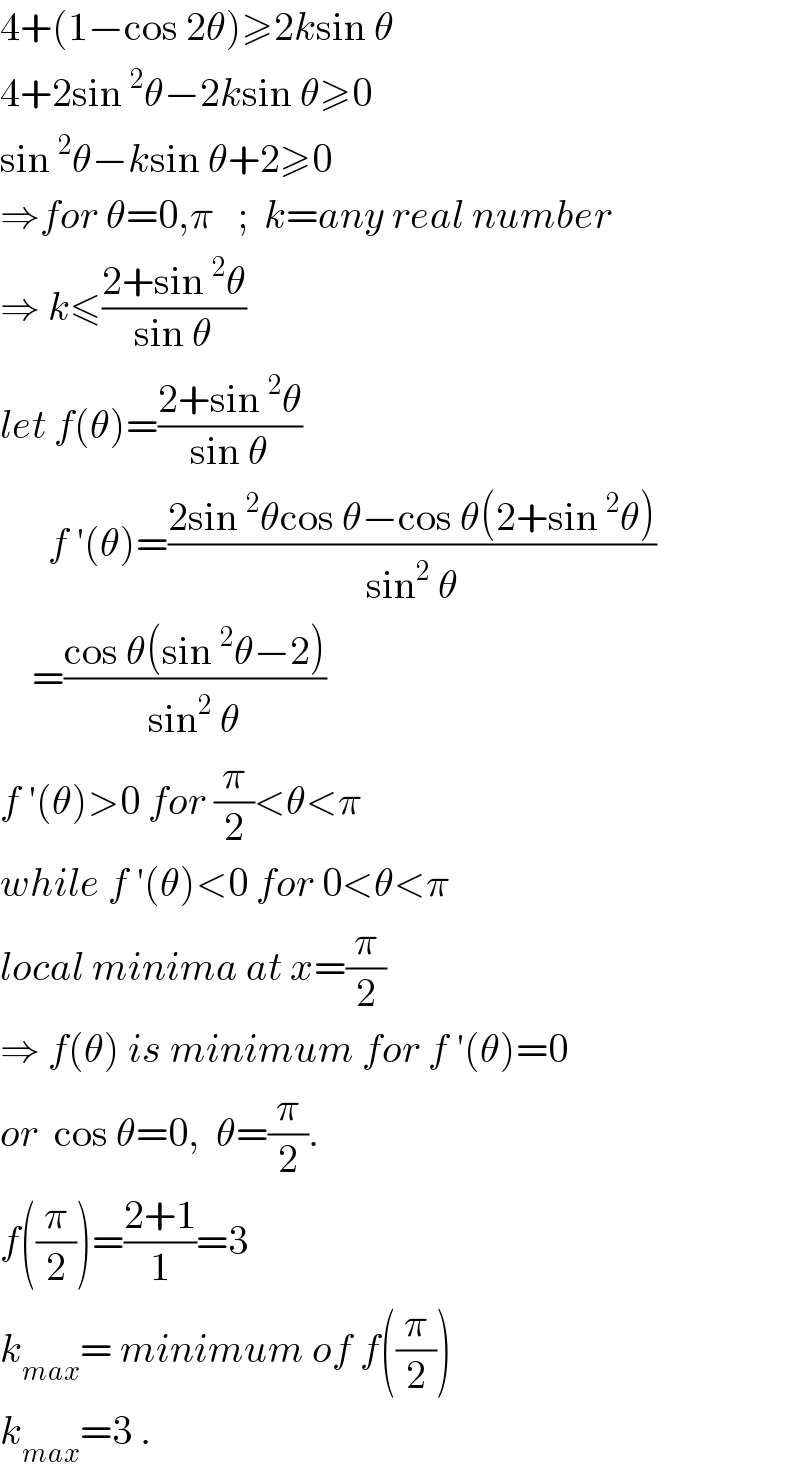
Question and Answers Forum
Question Number 14130 by Joel577 last updated on 28/May/17

Commented by Joel577 last updated on 28/May/17

Commented by prakash jain last updated on 28/May/17

Commented by prakash jain last updated on 28/May/17

Commented by Joel577 last updated on 29/May/17

Answered by ajfour last updated on 28/May/17

Commented by prakash jain last updated on 28/May/17

Commented by ajfour last updated on 28/May/17

Commented by Joel577 last updated on 29/May/17

